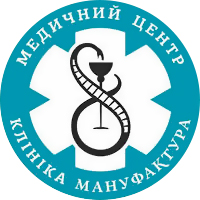Palliative care
Palliative care is the special medical care for cancer patients to relief cancer symptoms or side effects of anticancer treatment and the pain management.
What is palliative care
Today, cancer treatment includes not only coping the tumor, but also provision of special medical care alleviating symptoms arising from both the disease and its treatment, in particular, the affect of chemotherapy or radiation therapy. Such affects can be pain, nausea, vomiting (sometimes quite exhausting), weight loss, patient exhaustion, etc. Elimination of these symptoms with pain management, antiemetics, and nutrition adjustment along with improving the patient's well-being and life quality is called palliative therapy or supportive therapy. Palliative care is provided along with the cancer treatment or after its completion, but by no means instead of it. Palliative care cannot cure cancer, but it is often used to help a patient survive difficult cancer treatments, or to control disease symptoms, including if the prognosis for recovery is poor.
- treatment of cancer symptoms: the treatment of malfunctioning organ affected by cancer or reducing of its dysfunction;
- treatment of tumor effects: the treatment of malfunctioning organ, suffering from nearby tumor development;
- treatment of side effects from antitumor measures;
- pain management.
Palliative care may consist of medication, radiation therapy, surgery, physical therapy, diet, and exercise.
Is palliative care effective and why is it important?
Patients often have a wrong understanding of both palliative care and its role in comprehensive cancer treatment. The most common mistake is to confuse palliative care with hospice care, although palliative care can be part of hospice care.
Palliative cure can be prescribed from the first days of diagnosis, as well as along with or immediately after the courses of chemotherapy and radiation therapy, to prevent deterioration of the patient’s state and well-being, that in severe cases may even make it impossible to give the antitumor therapy. A vivid example is an anemia developing in cancer patients. If no treating anemia, antitumor chemotherapy is impossible. Treatment of anemia and its symptoms becomes a specialized supplement therapy, i.e. palliative care, in the comprehensive treatment of cancer.
Palliative care can be also a specialized cure to reduce the patient's suffering, improve his life quality significantly, and often prolong it, in cases where cancer treatment has no prospects.
How to get palliative treatment in «Manufactura Ckinic» medical center
Make an appointment
Your name
Phone number
Direction
Desired date
Comment










